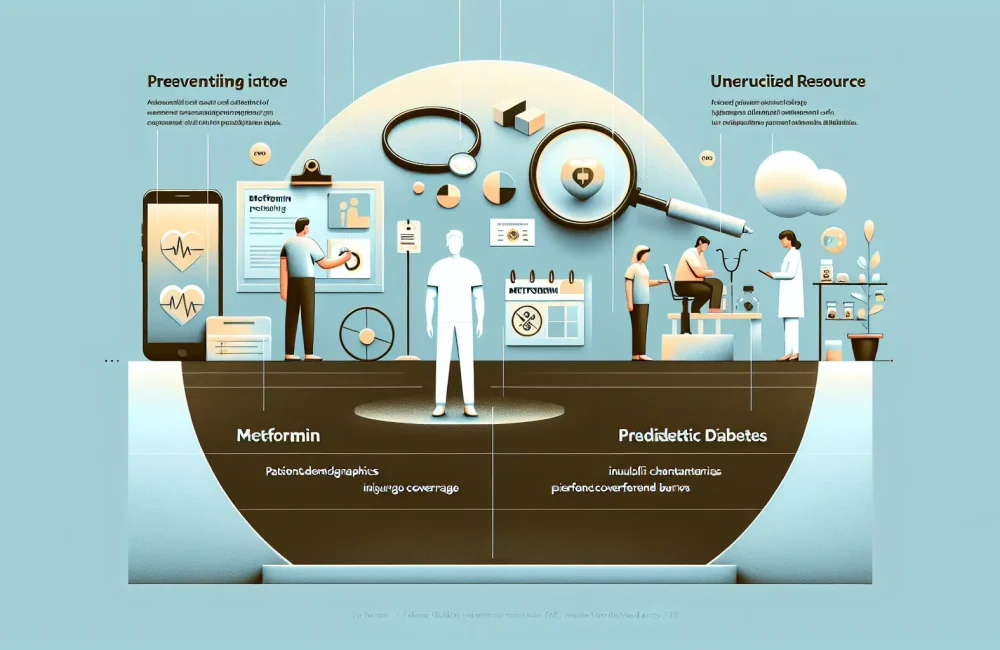By CAFMI AI From Journal of General Internal Medicine
Improved Diabetes Monitoring After Starting Addiction Treatment
This study highlights the healthcare outcomes of patients with type 2 diabetes (T2D) who also have alcohol use disorder (AUD) after beginning addiction treatment. Patients with these co-occurring conditions often face complex management challenges that can influence their diabetes outcomes. The study, conducted retrospectively, utilized electronic health records and insurance claims to evaluate key diabetes care metrics before and after addiction treatment initiation. Results demonstrated that starting addiction treatment is associated with improved adherence to diabetes care guidelines, notably an increased frequency of HbA1c testing. This marker of blood sugar control is crucial for monitoring the progression and management of diabetes. Improved monitoring indicates a positive shift in clinical care engagement among patients with this dual diagnosis, underscoring the importance of addiction treatment as a catalyst for enhanced diabetes management. These findings suggest that addiction treatment programs can provide a critical window for clinicians to reinforce diabetes care protocols and improve patient outcomes.
Challenges in Managing Diabetes During Addiction Treatment
Despite the noted improvements in monitoring, the study also found that some patients experienced an increase in diabetes-related emergency department visits during the period following addiction treatment initiation. This pattern suggests that while addiction treatment may improve routine diabetes monitoring, the complexity of managing both conditions concurrently can lead to increased acute complications. These emergency visits could reflect episodes of unstable glycemic control, acute metabolic disturbances, or other diabetes-related complications exacerbated by alcohol withdrawal or the stress of addiction treatment. For clinicians, this signals a need for heightened vigilance and proactive strategies to manage these risks effectively. The co-management of AUD and T2D requires tailored care plans that consider the fluctuating health status of patients undergoing addiction treatment. Integrating addiction services with diabetes care may help mitigate these acute events by providing more comprehensive and responsive clinical support.
Integrating Care to Enhance Patient Outcomes
The study underscores the importance of integrated care models that combine addiction treatment with comprehensive diabetes management. By coordinating these services, healthcare providers can address the unique challenges faced by patients with AUD and T2D, reducing emergency complications while sustaining improved monitoring practices. Patient education, multidisciplinary teams, and continuous follow-up are key components in creating effective treatment plans. Future research should focus on identifying best practices for integration and exploring interventions that reduce acute diabetes events during addiction recovery. Ultimately, fostering collaboration between addiction and chronic disease specialists may lead to better long-term health outcomes for this vulnerable population.
Read The Original Publication Here






